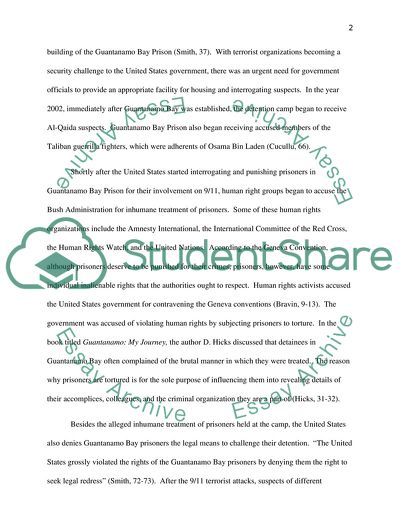Cite this document
(Guantanamo Bay Detention Camp Term Paper Example | Topics and Well Written Essays - 2250 words, n.d.)
Guantanamo Bay Detention Camp Term Paper Example | Topics and Well Written Essays - 2250 words. https://studentshare.org/politics/1821911-guantanamo-bay-detention-camp
Guantanamo Bay Detention Camp Term Paper Example | Topics and Well Written Essays - 2250 words. https://studentshare.org/politics/1821911-guantanamo-bay-detention-camp
(Guantanamo Bay Detention Camp Term Paper Example | Topics and Well Written Essays - 2250 Words)
Guantanamo Bay Detention Camp Term Paper Example | Topics and Well Written Essays - 2250 Words. https://studentshare.org/politics/1821911-guantanamo-bay-detention-camp.
Guantanamo Bay Detention Camp Term Paper Example | Topics and Well Written Essays - 2250 Words. https://studentshare.org/politics/1821911-guantanamo-bay-detention-camp.
“Guantanamo Bay Detention Camp Term Paper Example | Topics and Well Written Essays - 2250 Words”. https://studentshare.org/politics/1821911-guantanamo-bay-detention-camp.


